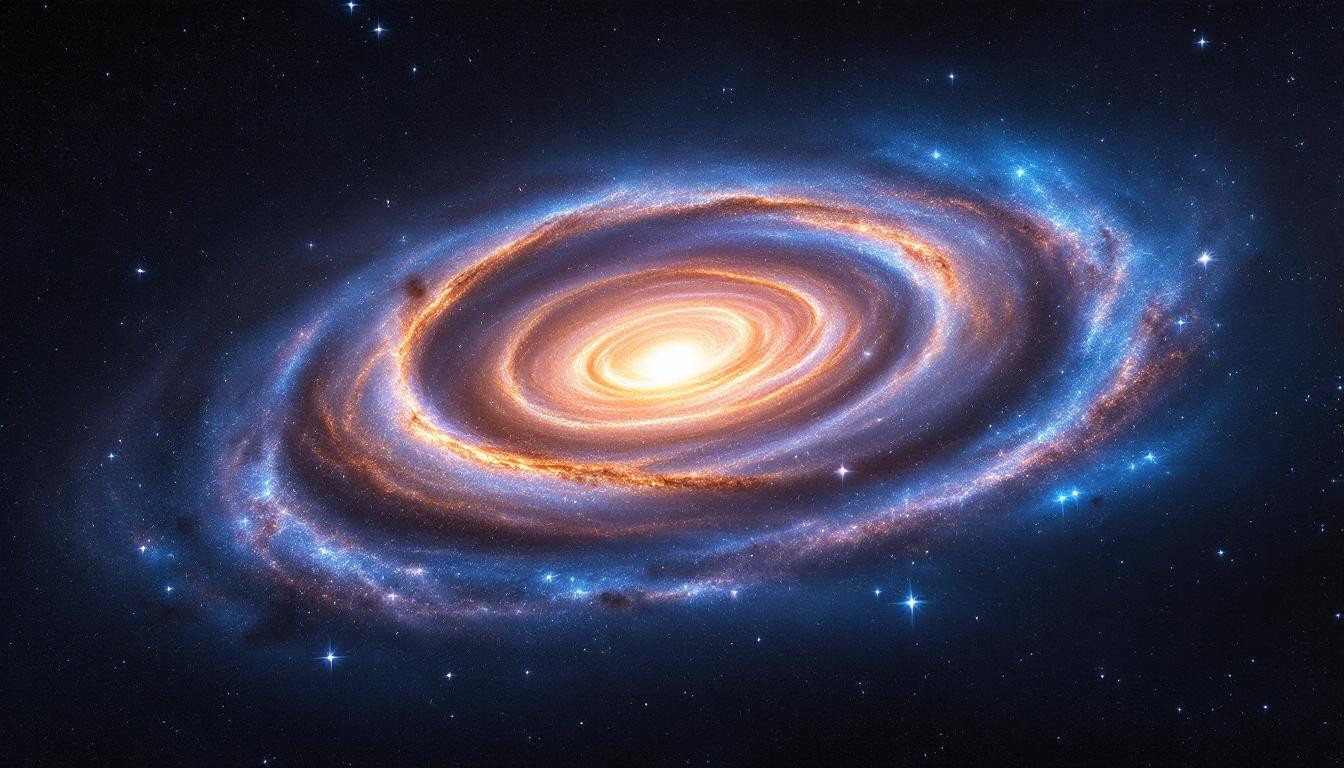Gazing at the stars has always captivated the human imagination, but did you know this celestial wonderment has profound psychological effects? The recent discovery of Zhúlóng (the “Dragon Galaxy”) by the Webb Telescope offers a fascinating lens through which to explore how cosmic discoveries impact our mental landscape. This distant twin of our Milky Way, observed in unprecedented detail just in time for Spring 2025, provides a unique opportunity to examine how space exploration affects our psychological well-being.
The awe response: What happens in your brain
When we visualize distant galaxies like Zhúlóng, our brains experience what psychologists call an “awe response” – a complex emotion that combines wonder, reverence, and sometimes even fear. This response activates both our prefrontal cortex and our amygdala, creating a powerful emotional-cognitive experience that literally expands our perception of time and diminishes our sense of self.
“The discovery of Zhúlóng challenges our understanding in profound ways,” notes astronomer Mengyuan Xiao. But beyond the scientific implications, such discoveries create psychological ripples that affect how we conceptualize our place in the cosmos.
Cosmic perspective and existential awareness
Contemplating a galaxy that spans 60,000 light-years yet bears striking similarities to our cosmic home can trigger what psychologists call “the overview effect” – a cognitive shift in awareness reported by astronauts who’ve seen Earth from space. This perspective shift often leads to:
- Decreased anxiety about daily stressors
- Enhanced feelings of connectedness
- Greater ecological awareness
- Improved existential well-being
The therapeutic value of astronomical visualization
In my clinical practice, I’ve witnessed how cosmic visualization exercises can serve as powerful grounding techniques for patients with anxiety. Like a mental journey through the vastness of space, imagining distant galaxies like Zhúlóng provides a form of perspective-taking that makes personal problems seem less overwhelming – similar to how a mountain appears smaller the further away we stand.
“This discovery shows how JWST is fundamentally changing our view of the early universe,” researchers note. Similarly, engagement with astronomical discoveries can fundamentally alter our psychological landscapes.
Practical applications for everyday mental health
You don’t need a telescope to benefit from the psychological impacts of cosmic discoveries. Consider these science-backed techniques:
Try a “cosmic perspective meditation” by visualizing yourself as part of the vast cosmic web connecting Zhúlóng to our own galaxy. This practice can help break rumination cycles by expanding your mental perspective beyond immediate concerns – like zooming out on Google Maps until your neighborhood becomes just one tiny part of a continent.
Follow astronomical news as a form of awe therapy. Research shows that experiencing awe for just a few minutes daily can decrease stress hormones and improve well-being. The Dragon Galaxy discovery provides a perfect opportunity to engage with this practice.
Finding meaning in the cosmic mirror
Perhaps the most profound psychological impact of discovering a galaxy so similar to ours, yet formed earlier than theory predicted, is how it challenges our assumptions about uniqueness and possibility. As we gaze at Zhúlóng through the Webb Telescope, we’re also looking into a cosmic mirror that reflects our own origins.
What aspects of your life might benefit from this expanded perspective? How might regularly connecting with the cosmic scale change your relationship with everyday challenges?
